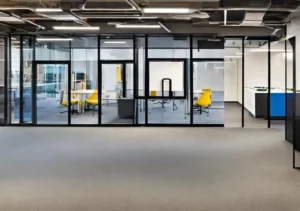Technical interviews can feel like standing in front of a firing squad, especially if you’re not fully prepared. The pressure to perform well can be overwhelming, making it easy to panic when faced with challenging questions or coding tasks.
If you find yourself in this situation, remember that it’s not the end of the road. There are effective strategies to help you navigate the interview and still leave a positive impression.
What should I do when I feel unprepared?
Feeling unprepared can be nerve-wracking, but acknowledging that sensation is the first step toward addressing it. Approach the interview with honesty—if the opportunity arises, it’s okay to admit you’re feeling a bit off your game. This honesty shows self-awareness, and many interviewers appreciate humility more than a perfect facade.
Maintaining a calm demeanor is key. Take a few deep breaths before you walk into the room. Center yourself and remind yourself that it’s okay not to know everything. Focus instead on your thought process and how you articulate your ideas.
Instead of panicking over what you don’t know, shift your effort toward how you can showcase what you do know. Highlight your strengths and past experiences that relate to the position, even if they don’t perfectly match the technical requirements. And remember, it’s not just about testing your technical skills; it’s about how you tackle problems and respond when you hit a snag. Think of this as a chance to learn and engage, rather than a pass/fail situation.
Can I ask for clarification on questions?
Absolutely! Asking for clarification is not only acceptable, it’s wise. Interviews are a two-way street; if a question doesn’t make sense or feels vague, speaking up can prevent misunderstandings and show your critical thinking skills in action.
Here’s a quick guide on how to approach it:
- Paraphrase the question you heard to confirm your understanding. This not only signals you’re engaged but allows the interviewer to correct any misconceptions.
- Ask specific questions like, “Are you looking for a solution-oriented approach or more focused on the technology stack?” This encourages a more directed discussion, showing you’re invested in answering accurately.
- Take your time to think. If you need a moment to process or break down a complex question, it’s perfectly fine to say, “That’s an interesting question; can I take a moment to think?”
Being proactive in seeking clarification can transform a tricky situation into an opportunity to shine. For more guidance on improving your communication skills during interviews, check out this article from MindTools.
Tip: Always stay engaged and maintain eye contact when you ask questions. This conveys confidence, even when you’re unsure!
Articulating your thought process during a technical interview can really set you apart, even if you stumble on the solution. Interviewers appreciate seeing how you approach problems. It’s not just about getting the right answer; it’s about showcasing your analytical skills and your ability to break down complex issues.
When faced with a tricky question, start by outlining your understanding of the problem. Feel free to ask clarifying questions if needed. This engages the interviewer and shows you’re actively thinking.
Additionally, share your reasoning as you work through the solution. Don’t hesitate to comment on your thought patterns and alternative approaches. For instance, if you’re unsure about a particular line of code, explain why you’re considering it. This openness fosters a connection and may even lead to helpful hints from the interviewer.
Remember, displaying how you think is often just as valuable as the solution itself.
How important is attitude during the interview?
A positive attitude can significantly impact an interview’s outcome. It creates an engaging atmosphere and leaves a great impression on your interviewer. Confidence, even in the face of uncertainty, shows that you’re resilient and can handle challenges professionally.
Here’s a list of specific ways to demonstrate a strong attitude:
- Smile: It sounds simple, but a genuine smile can help ease tension and fosters rapport.
- Maintain eye contact: This shows attentiveness and confidence in what you’re discussing.
- Encourage collaboration: Frame your thoughts in a way that invites discussion, such as, “What do you think about this approach?”
- Revise mistakes positively: If you realize you’ve made an error, confidently acknowledge it and correct yourself rather than dwelling on it.
On top of that, staying calm and collected can make a world of difference. If you face a question you weren’t prepared for, take a deep breath, and maintain that positive mindset. Interviewers are often looking for how you cope with pressure just as much as your technical skills.
For more tips on managing interview anxiety and maintaining a positive attitude, check out this helpful resource from Harvard Business Review: Interviewing Tips.
What can I do if I can’t solve a problem?
Stumbling on a technical problem isn’t the end of the world. It’s all about how you handle it. First, stay calm. Taking a deep breath can help clear your mind, making it easier to think.
Next, try breaking down the problem. Ask yourself, “What do I know?” and “What do I need to find out?” Communicate your thought process out loud; the interviewer often values how you approach problems just as much as the solution itself.
If you get truly stuck, pivot gracefully by suggesting alternative solutions. You might say, “I’m not sure how to tackle this directly, but I think I could approach it using X method instead.” Showing creative thinking can impress interviewers, even if you haven’t solved the initial problem.
Finally, don’t be afraid to ask questions. Clarifying details can lead you down a more productive path or might reveal hints that make the problem easier to manage. Remember, it’s a conversation, and engagement is key. For more strategies on problem-solving in interviews, check out this guide for extra tips.
Are there common interview tricks I should know?
Technical interviews can come with their fair share of surprises, including tricks that are designed to test your problem-solving approach rather than your rote knowledge. Here are a few common pitfalls to be aware of:
Overcomplicating Solutions : Some interviewers might present a problem that seems to require a complicated solution, while the simplest option actually does the job. Always consider whether a simpler path would suffice.
Trick Questions : Be wary of questions that seem straightforward but contain a catch. For instance, asking how many ways you could arrange a certain set of objects may seem simple, but usually has underlying details you need to explore.
Scope Creep : Interviewers may start a question simply but add complexities as you answer. Stay clear on what they’re asking. Don’t hesitate to ask clarifying questions to ensure you keep your focus on what’s relevant.
Real-world Applications : Sometimes, interviewers might throw in a scenario relevant to the company’s tech stack to see how you approach real issues. Familiarize yourself with common frameworks and tools used by the company; understanding their tech landscape can be hugely beneficial.
Rapid Fire Questions : Be prepared for sudden questions that require quick thinking. Approach each one methodically and take a moment if needed to gather your thoughts.
Being aware of these tricks can help you keep a level head and maintain your confidence during the interview, making it easier to navigate any curveballs.
How do I follow up post-interview?
Following up after a tech interview can make a lasting impression. A well-crafted email shows that you’re genuinely interested and engaged.
Start with a brief thank-you note, addressing the interviewer by name. Express appreciation for the opportunity, and mention a specific topic discussed during the interview to jog their memory. This creates a personal touch and reinforces your value.
Next, reiterate your enthusiasm for the role. This keeps you top-of-mind. If you have any new insights or very relevant materials—like a project link or a relevant article—feel free to share. This adds some value to your message.
Finally, don’t forget to mention that you’re looking forward to the next steps. A simple closing line will do: “I’m excited about the possibility of joining the team and contributing.” Choose a strong subject line that indicates your purpose, such as “Thank You – [Your Name]”.
Here’s a quick checklist for your follow-up email: – Thank the interviewer for their time. – Reference specific discussions from the interview. – Reaffirm your interest in the position. – Include any additional insights or materials. – Ask about the next steps in the hiring process.
A follow-up email can be the extra push that sets you apart.
What are the benefits of experiencing a tough interview?
Facing a challenging technical interview can feel overwhelming, but it packs invaluable lessons. Every tough question can reveal gaps in your knowledge or skills, pushing you to dig deeper into the areas you may have overlooked.
Think about it—experiences like these often bolster your problem-solving skills and help you to think under pressure. You might find yourself more prepared for common pitfalls that arise in technical roles, which can only boost your confidence moving forward.
Plus, tougher interviews often mean tougher interviewers. This exposure can improve your ability to articulate your thought process, which is a critical skill in both interviews and real-world scenarios where you need to explain complex ideas.
If you can handle a demanding interview, you’ll be more ready for whatever comes next. Embrace the challenge!



